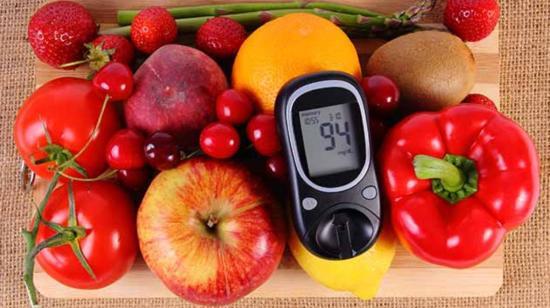Why Diabetes Loves Indians?
Diabetes can strike anyone, from any walk of life. We all know someone who has diabetes if we don’t have it ourselves.
Obesity, especially central obesity and increased visceral fat due to physical inactivity, and consumption of a high-calorie/high-fat and high sugar diets are major contributing factors for diabetes in Indians. There is also strong evidence that Indians have a greater degree of insulin resistance and a stronger genetic predisposition to diabetes.
India has the challenge to face. However, timely detection and right management can go a long way in helping patients lead a normal life.
In diabetes, the pancreas either produces little or no insulin, or the body cells do not respond to the insulin that produced whereby causing an increase in blood glucose levels.
Over time, high blood glucose leads to problems such as heart disease, stroke, kidney disease, nerve damage, etc.
DFD include – frequent urination, increased thirst and hunger. If left untreated diabetes could lead to complications including recurrent infections, heart diseases, stroke, chronic renal failure, foot ulcers and gangrene, damage to the eyes and even coma.
Risk factors:
- Heredity.
- Obesity.
- Sedentary lifestyle.
- Ageing.
- Malnutrition.
- Stress and anxiety.
In Type 1 diabetes, the body does not make insulin. Your immune system attacks and destroys the cells in your pancreas that make insulin. Type 1 diabetes is usually diagnosed in children and young adults. People with type 1 diabetes need to take insulin to stay alive.
Type 2 diabetes: In type 2 diabetes, the body does not make or use insulin well. You can develop type 2 diabetes at any age. However, this type of diabetes occurs most often in middle-aged and older people. Type 2 is the most common type of diabetes.
Type 2 Diabetes can be controlled by Diet and exercise or Diet, exercise and Oral hypoglycemic drugs/ insulin. Often, type 2 diabetes is tied to people who are overweight, with a sedentary lifestyle.
Dietary guidelines:
- Drink plenty of water.
- Maintain your healthy/ ideal body weight.
- Have small frequent meals in a day and don’t skip any meal. The gap between two meals, however, should not exceed 3 to 3½hours in order to maintain blood glucose levels.
- Eat more of fibre in diet hence eat more of fruits and vegetables. Vegetables such as broccoli, beans, spinach, peas and leafy vegetables can be consumed and fruits like apple, papaya, guava, kiwi, oranges, pear, etc.
- Include complex carbs in diet like wholewheat grains, brown rice, oats, etc.
- Include lean protein in diet like lean chicken, fish, sprouts, pulses and low-fat dairy products in diet like skimmed milk, yoghurt.
- Eat healthy fats like Omega-3 in the diet. E.g.Fish, flax seeds, olive oil, walnuts, etc.
- The recommended cooking methods for non-veg items are baking, grilling, roasting, steaming, boiling or broiling.
- Include fenugreek seeds, flax seeds, cinnamon powder and wheat grass in the diet. (Overnight soaked methi seeds are also considered an effective remedy).
- Limit the salt intake in the diet.
- Exercise daily for 30mins at least. Helps in controlling weight in the obese and diabetic patients by improving the insulin sensitivity and thereby lowering the blood glucose levels. E.g. walking, cycling, swimming, etc.
- Sleep well.
- Avoid all simple carbs in diet like white rice, white bread, media, corn flour, etc.
- Avoid all processed, sugary, junk and fried food.
- Avoid eating sugar, honey, jaggery, sugarcane, pickles in oil.
- Don’t eat fruits like banana, mango, chickoo, custard apple, jackfruit, and grapes.
- Avoid eating saturated fat in diet like butter, red meat, mayonnaise, etc.
- Avoid eating roots and tubers like potato, sweet potato, etc.
- Avoid drinking aerated drinks.
- Avoid drinking alcohol.
- Avoid drinking coconut water, milkshakes and fruit juices (instead consume a whole fruit).
- Manage your stress levels. Try yoga.
- Quit smoking.
Don’t let the Diabetes control you! You control the Diabetes!



